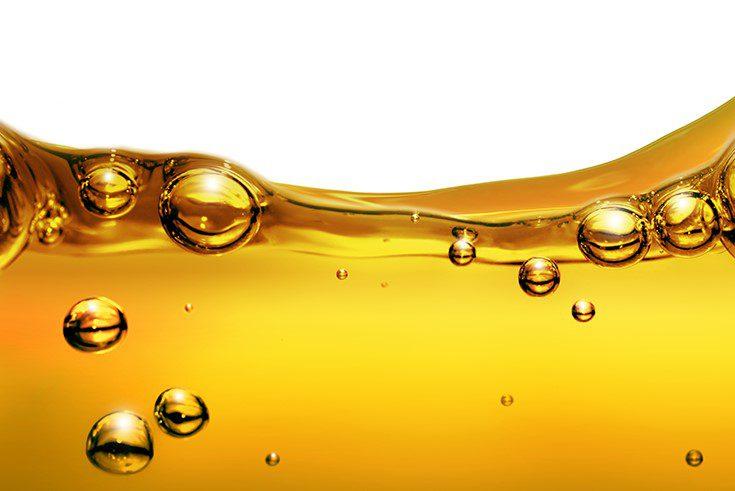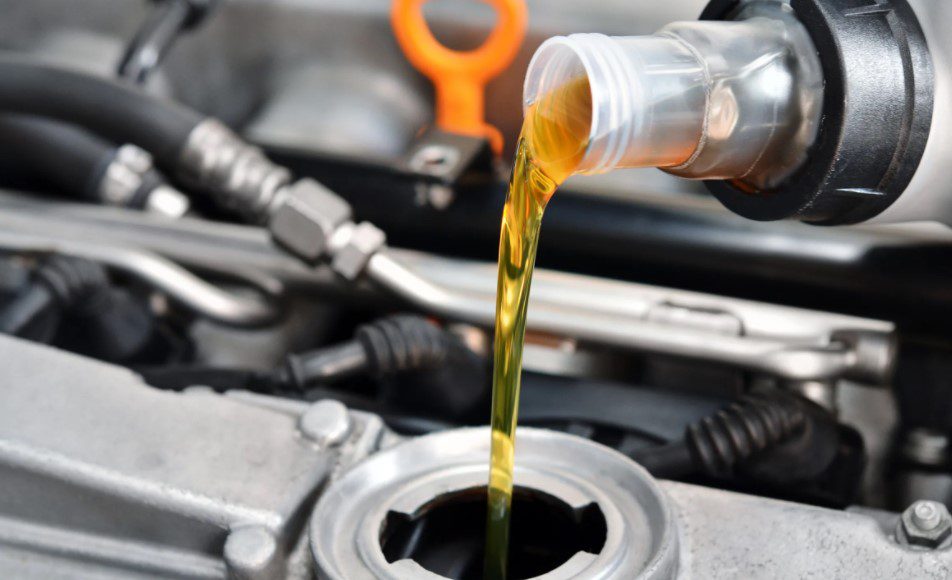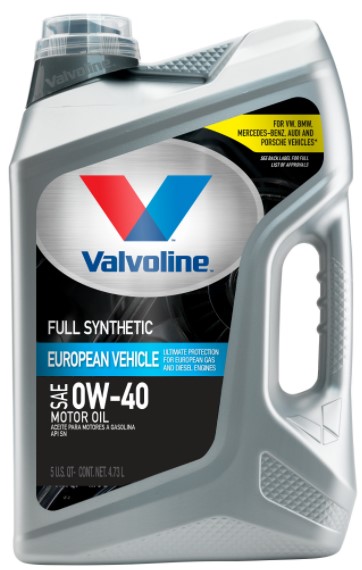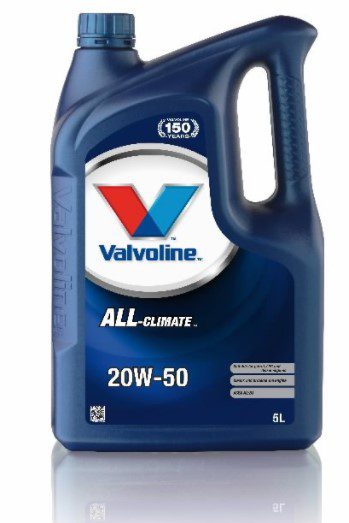Both 10W40 and 20W50 are fundamentally sound, and better oils wouldn’t exist. But the truth is that the plain bearing gear clearance determines what weight oil a motor should have circulating through it. Again, they require a specific type of motor oil. Each of them varies in terms of different weight and viscosity. It is tough to decide which oil is suitable for the mechanism.
However, the good news is that both of these lubricating oils are ideal for winter and summer temperatures. So ethically, they are reliable to run your vehicles. The differences are in their thickness and functionality. That’s why we included here the essential dissimilarities between 10W40 vs. 20W50. Let us dive.
10W40 vs 20W50
One of the fundamental differences between lubricating oils relies on their viscosity index. The 10W40 has a viscosity index of 150, whereas the 20W50 oil comes with 130. Likewise, we have listed them below to make the job easy and facile for you.
| Features | 10w40 | 20W50 |
| Viscosity | 40 | 50 |
| Temperature | -25 C /-13⁰ F at low height, & +40 C/+140⁰F | -20⁰ C /-4⁰ F & +45⁰ C/ +113⁰ F |
| Engine Recommendation | 1K k.m or 6K miles | 2K miles or more |
| Price | Expensive | Average |
Comparison of Features: 10W40 vs 20W50

As we know, the primary purpose of lubricating oil is to run your vehicles in a well-mannered way. The 10W40 and 20W50 oils have different viscosity and matches that ensure the highest gas mileage. The other manufacturing matches and a mixture of oils increase the engine’s performance. So here are the vivid feature comparisons of these two oils.
About 10w40 Engine Oil
10W40 is one of the most popular engine lubricating oils renowned for modern vehicles. In addition, all cars launched in 2012 required more lubricants and cold temperable friction. 10W40 is the best featured and reliable engine oil for driving low climate cars or vehicles. Again, it is recommended for a car with 100000 km or 60000 miles at a time.
The number of this engine oil viscosity includes 10w40. Here, the 10 is to stands for the low-temperature oil viscosity rating. That means the oil is the best suitable for low temperatures under -25 degree CC to -13 degree F. If the temperature increases about +40 degree CC to +104 degree Fahrenheit, this oil will work to cure the betterment of the engine conditions.
About 20w50 Engine Oil
The 20W50 is not as similar as the 10W40. 20W50 is only preferable to use if the manufacturer recommends you. That means it is a manufacturer-specified oil. The vehicle that expects to devote itself to heavy-duty stuff, high speed, and sound performance should switch to this oil asap.
As the oil name 20w50 suggests, it comes 20 that indicates the viscosity of this oil. The number shows that you can use it at the lowest or wet temperature, mostly of -20⁰C to -4⁰F. Besides, the number 50 is symbolized for high temperatures that are only bestowed for +45⁰C-113⁰F.
Usage Of 10W40 Engine Oil
The 10W40 engine oil is usually used to improve the flow of fuels and other stuff. As though,
- Embittering of engine performance
- Protects the piston skirts, gears, bearings while the inside temperature is high
- Good purchase for high performance and modern vehicles engine
Usage Of 20W50 Engine Oil
20W50 Oil is ideal and much more efficient than 10W40. 20W50 is proven for watching out for the engine at the lowest temperature, especially for the people of lousy climate areas. Engine stuck off is the standard-issue if you store them in the garage for more than a week.
The engine gets stuck and freezes due to excessive cold. At that time, heating the engine deck and leveling up the fuel density is possible by using any grease of high potentiality. So the 20W50 is the champ to heal those sorts of conditions of the engine and increase the temperature. Although this oil works for,
- Increase the engine longevity
- Making a suitable atmosphere to remove the impurities
- Run the stuff more efficiently than random passenger cars
- Freed from the hassle of changing the fuel frequently
- It can be used in both cold and hot weather
Viscosity
In general, engine oil is defined by two grades. One is an indicator, whereas another is viscosity. For example, you find two numbers if you see the number 10W40. The w is the indication of the environmental suitability and the thickness. Another one, 40/50, is its numerals of temperature. Let’s look at the difference between 10W40 vs. 20W50 viscosity power.
| 10W40 Oil | 20W50 Oil |
| The 10W40 Oil comes with the viscosity of 40th grade. That means the oil is more vicious even at the lowest temperature. Again, the oil works and performs better during the most down heating period. They will include 10th to 40th in weight. | Although the 20w50 means, the oil refers to the 20-50 weight as a viscosity grade. The requirement only wants a temperature of 100⁰ degrees Celsius as well as it will be thicker than 0⁰ degrees Celsius. |
Fuel economy
Fuel economy is considered the ratio of liquor efficiency to high mileage potential energy. The numerical indicates how much power you’ll get from the fuel for the vehicles. In a word, it is a converting power of fuel effectivity.
| 10W40 Oil | 20W50 Oil |
| The 10W40 oil is considered to be better than the first one. Its 10W40 is the best example of high fuel economy. Besides, this oil is the source of broadening the higher mileage of the car. It is the less thick fuel liquor rather than the first one. | The 20W40 oil is likely to smoothen the vehicle journey than other lubricants. If you currently have that with 300,000-200,000 miles and are thinking of changing it into the 20W40, it might not be a wise decision. Changing the oil didn’t improve your vehicle’s gas mileage and performance. But the difference is that 20W40 is thicker than 10W40, which is the prominent part of reliability and durability. |
Compatibility With Hot Weather

Hot weather means your vehicle fuel becomes melted out or burns because it can’t cope with the excessive warm temperature. Again, in cold weather, the engine oil gets frozen or stuck. So it is essential to check the compatibility of the oil to ensure it is reliable to suit during hot weather or not.
| 10W40 Oil | 20W50 Oil |
| 10W40 only prefers the out-going temperature, as the number includes 10-40. That means it is made to compete with the lowest temperature rather than the temperature of the 20w40-50. The low-temperature viscosity of this oil is -25⁰C or -14⁰ F. Again, the lowest temperature is not as reliable as other lubricating oils. The cold weather is suitable for this viscosity oil to make a way to run the engine in a smoothened manner. | High temperatures do not affect the viscosity of 20W50. Hotter regions just require warmer oil. 50 degrees is not an issue. And the landmarking temperature of this oil is around +45⁰ C/ 113⁰F. That means it is compatible with hotter climates. |
Density

The density of any engine oil will require substances of mass per unit volume. The thickness of oil of any lubricant defines what measurement it will be used for running the vehicles.
| 10W40 Oil | 20W50 Oil |
| 10W40 OilOil has a density of 865 kg/m3. The density level of this oil is 7× more than the 20W40. One of the essential facts of high-density Oil will improve your starting and lower fuel consumption. Again, the density of engine oil plays a critical role in how the lubricant functions and how the machine performs. So the higher the oil density, the better your vehicle runs through. | The 20W50 has a density of 872 kg/m3. So we must say the 10W40 is more profound than the 20W50. In addition, the 20W50 is much more reliable than it. As we said, the more density oil is used to run the vehicle, so here you may expect to get better performance. However, the truth is there will be no extra advantages to using either 10W40 or 20W50. |
Additive
Although the oil additive or engine additive oil is different from each other, the main goal of this oil is to increase the futility and performance.
There are significant differences between 10W40 and 20W50. They function differently and have different characteristics. Their unique properties contribute to good thermal stability and oxidation.
Prices
We’re always looking to buy any products with a limited budget. Luckily, the 10W40 is cheaper than the 20W50. In that case, our suggestion is to pick the 20W50 if you need to replace the oil regularly. Again, you can choose to buy 10w40 if you wish to add more cash or have light vans or passenger cars. It’s because the passenger car or van won’t let you change the oil once more.
When To Use 10W40 & 20W50 Engine Oil?
You must use 10W40 engine oil if the car is newer. Again, an engine that only makes or recommends high temperatures or warm weather is good to use 20W50 if you don’t need to re-oil the machine often. By doing this, the engine will be able to prevent the sludge. So it would help if you took note that you might use any sort of oil, even when you need to change it from time to time.
Again, both are well enough to use during winter for low oil viscosity. Remember that each of them might be useful if the manufacturer included them later in their manuals.
Finally, Which One To Choose?
All of these engine oils only depend on what purpose you want them for and what OilOil your manufacturer wants them to be. Both 10W20 vs. 20W50 are suitable for use when it is time to indulge any high mileage vehicles. But 10W20 is more reliable and easy to conduct for heavy profile vans or trucks.
Therefore, when your vehicle, biz to change the oil repeatedly. Use the 10W20 Oil. Hence, use the 20W50 for cars that require changing the oil once a time. Don’t forget that each engine oil has its distinctive functions and features. So it is crucial to use a sampling type of oil for the vehicle engine for running fugitives.
Related Post For You:



